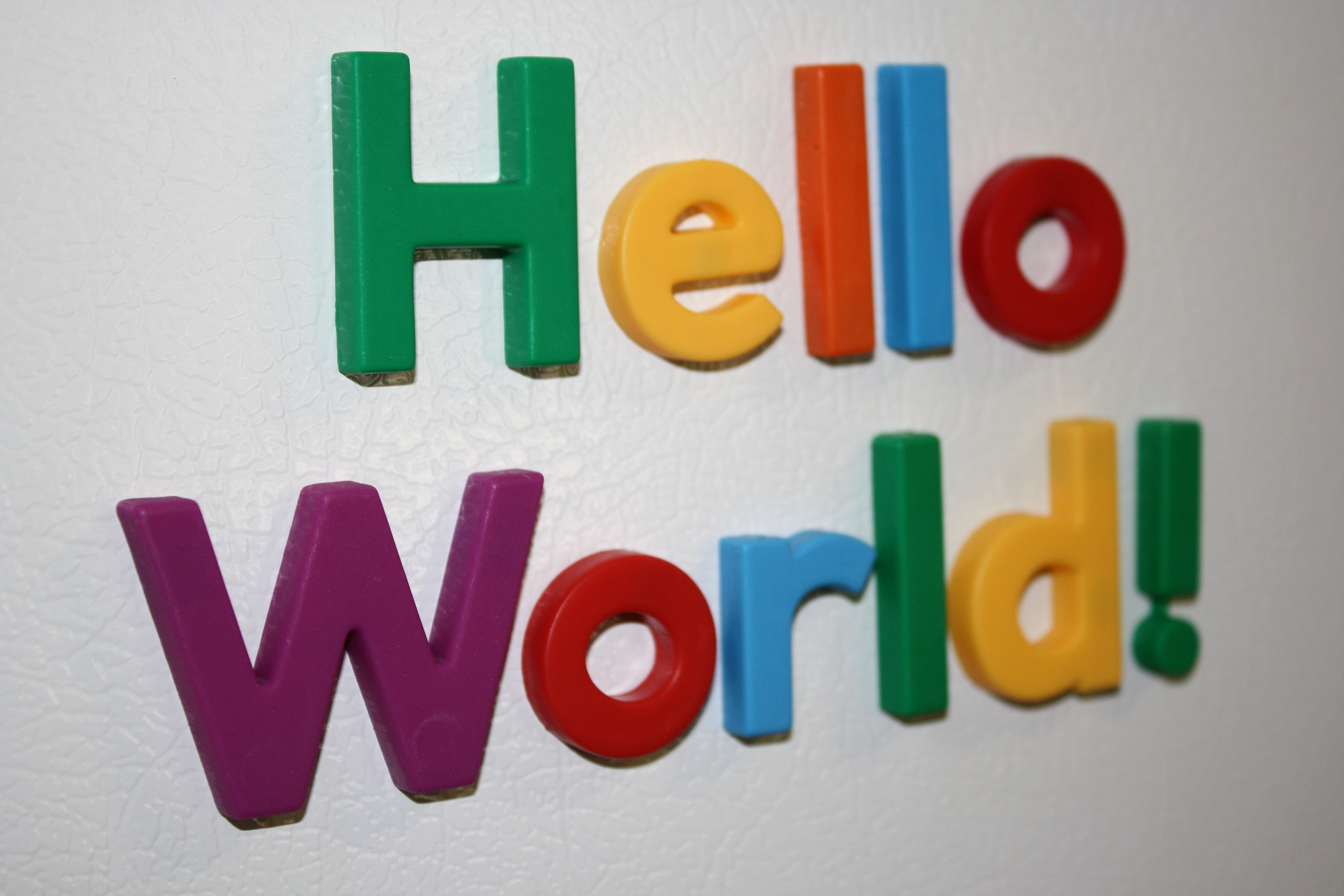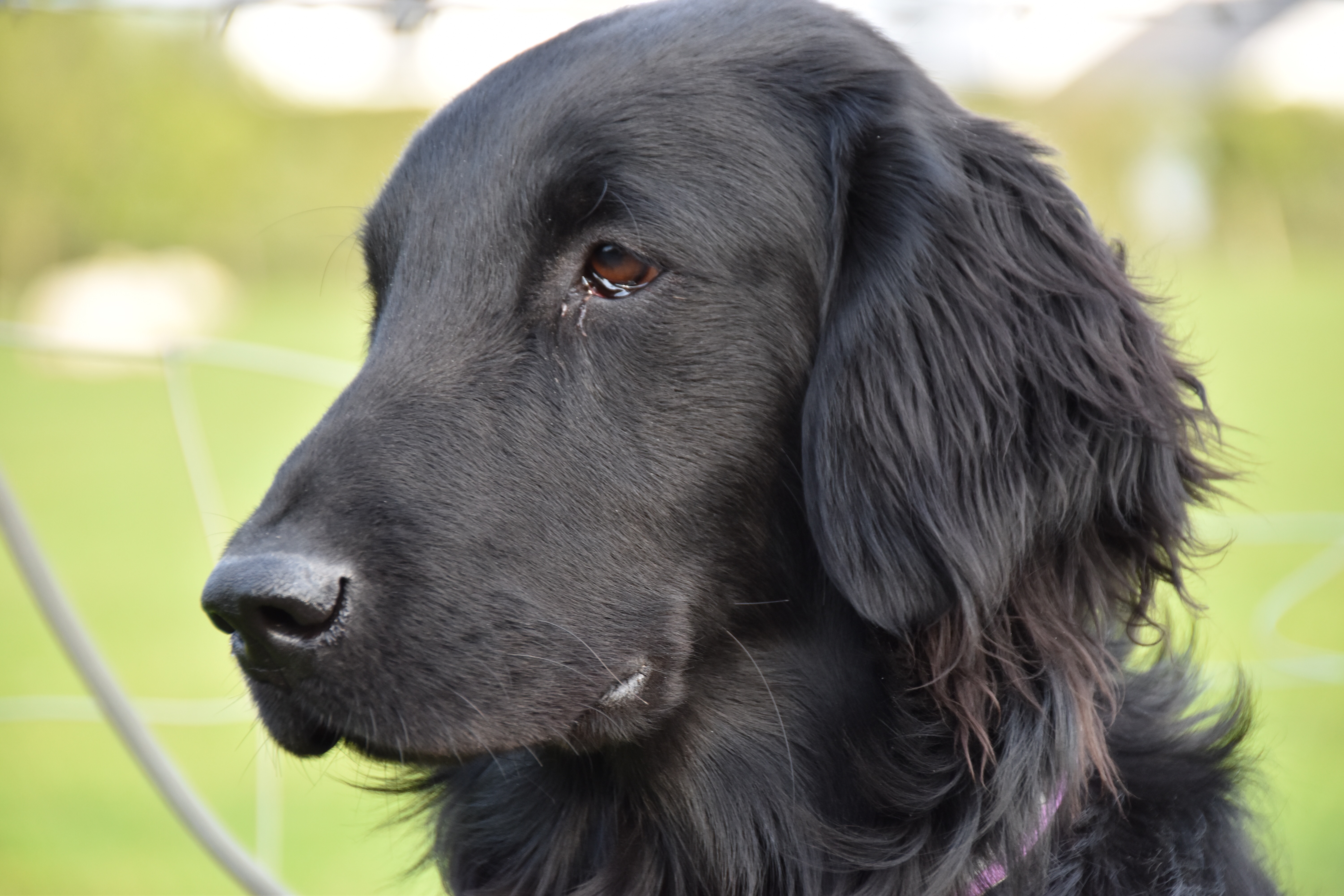Irish Wolfhound – Profile – Health Issues – Information you can use
The Irish Wolfhound
Origin: Ancient times. Original function: Coursing wolves. Today: :Lure coursing.The first mention of the Irieh Wolfhound was in Rome in a.d. 391. Arena sports was where the dogs got their early notoriety. At one time, large breeds of dogs were known as “Cu’s.” This meant bravery, something derived from the fighting arenas. The Irish name for the breed is Cu Faoil which were used to hunt wolves, Irish elk and boar. The last wolf was killed in the 18th century and by the 19th century the Irish Wolfhounds were nearly extinct in Ireland. In 1869, British officer G. A. Graham decided to re-develop the breed and set out to locate a few of the remaining Wolfhounds. With time and work, the breed was slowly replenished using Great Dane, Borzoi, and Tibetan Wolf dogs to the point where the Wolfhound was able to be shown in a dog show in the 1870’s. This created quite a stir but the breed will never be highly popular due to it’s impractical size.
Slow learner. He’s intelligent, but takes his time learning. If you use clicker training it will speed thing up quite a bit. You’d be surprised. Dogs respond well to this method and it’s so simple to do.
Crate Training
Want to crate train your Irish Wolfhound puppy? It’s easy and if you’re interested, take a look and you’ll see what to do. Crate training your puppy will save many headaches and problems.
Potty Training
Irish Wolfhound puppies can be somewhat difficult to house train, potty train, toilet train, housebreak or whatever you want to call it. If you have a puppy, decide if you want to crate or paper potty train it. For the best results, we have a page at Crate vs Paper Potty Training which will help you decide and from there you can get all the information you need to get the job done. Always praise the pup profusely when she goes potty in the RIGHT PLACE so she knows she has done a good thing. Either method will work for this breed.
If you have an older dog, take the dog outside every two hours until she gets the idea which door leads to her potty area. Older dogs catch on to the potty or housebreaking pretty fast once they are shown what to do. Top
An Irish Wolfhound gets a tummy rub
Irish Wolfhounds are oversized pussycats. They are so mild mannered, polite and easy-going that they are sometimes called “the gentle giant.” It is a calm, patient dog that gets along fine with children and just about anyone who comes to visit. The Wolfhound does quite well with other dogs and is not considered aggressive in nature. The breed is not playful and that’s good because a dog of this size could do damage if it got too rambunctious! This is a loyal family dog. The Wolfhound is not really a watchdog but he can defend himself if necessary. His size alone can be intimidating.
If you happen to get an Irish Wolfhound with a separation anxiety problem, that can be dealt with by investing a few hours of work on your part and some “tough love.”
Friendly Toward Other Dogs
OK. Gets along with most other dogs. Not an aggressive breed.
Friendly Toward Other Pets Top
OK. Usually no problem with other pets.
Friendly Toward Strangers
Yes, likes most people and usually no problem with strangers.
Playfulness
NO. Not playful. Friendly, affectionate, calm and quiet, but not playful. Throw a ball and he might fetch it though.
Yes, reasonably affectionate for a big guy.
Yes, the friendly Irish Wolfhound is quite tolerant with children. Small children beware and should be supervised closely, as this big dog could cause serious harm by accident.
Good with Seniors over 65?
NO. Too big, heavy and difficult for a senior to handle and get to a vet.
The proud Irish Wolfhound
Living environment
House with a medium size backyard, farm, ranch. Needs room to roam and stretch and maybe fetch balls. Must have a soft bed to sleep on. Can not sleep on hard surfaces.
Energy level
Minimal. Irish Wolfhounds aren’t known for excessive energy,
A quiet walk on leash once or twice a day. He might fetch a ball.
Might bark a little if senses a threat.
No. May challenge if provoked.
No to very little.
Brush twice a week. Some scissoring as needed. Strip dead hair twice yearly.
Last book on the right is by the American National Red Cross and deals with dog health, Dog illness, emergencies and injuries. It’s a valuable reference manual for all dog owners.Vol 2, Cpyrt 2008 and includes a DVD. ________________________________________________ Top
In the event you decide to go looking for Irish Woldhound puppies, be SURE to find reputable breeders that really know what they are doing. Be sure the puppy has been well socialized and started in obedience training.
Irish Wolfhound Breeders with puppies for sale.
Irish Wolfhound Rescue
In the event you are seriously considering the adoption of an older dog and are looking for an Irish Wolfhound Rescue group or groups in your state, here are several links that might help:
Petfinder – Irish Wolfhound RescueI just checked and Petfinder is showing only 54 Wolfhounds available for the entire country. If you do adopt one, try to locate any dog health records for possible future reference.
Adopt A Pet This is an interesting site but based on what I found at Petfinder, you may need to surf the web. Check for Irish Wolfhound Rescue groups, kennels, and dogs for sale. This will not be an easy breed to locate. Top
This is basically a healthy breed. Don’t let the list below scare you! Your own dog will probably never have ANY of these problems. These are dog illness and medical problems this breed is prone to that have been listed by various veterinarians at different times over the past decade or so and some pertain to puppies and very young dogs that a breeder would deal with.
The information contained herein has been gathered from numerous books by veterinarians and is intended as general information only. Every dog and situation is different. You must see your vet. Our information is for general interest only and not intended to replace the advice provided by your own veterinarian.
-
Gastric Torsion—Sometimes called Dog Bloat or “Twisted stomach.” Mainly in larger, deep-cheated dogs. Here’s a brief description of the problem:
Symptoms include excessive drooling, nervous pacing, agitation, weakness, attempt to vomit, bulging stomach area, heavy breathing, retching and gagging, shock or total collapse.
No allergies are reported for this breed so far.
Other health problems could occur with your Irish Wolfhound. If you notice any problems with your dog, take it to the vet immediately. This website is for general information only and is not intended to, in any way, be a medical guide.
Copyright © 2008 – 2016 All Rights Reserved Do not copy or reproduce any portion of this website without our consent. dog-adoption-and-training-guide.com

